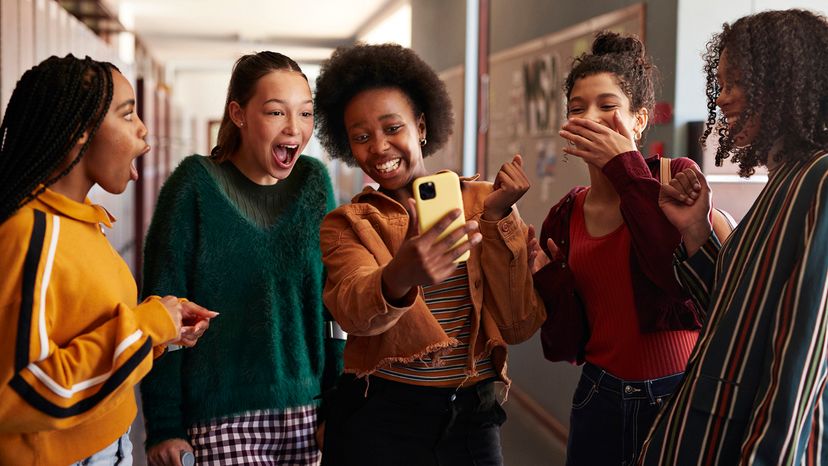This group has lived their entire life with instant access to mountains of data on any topic that flutters through their imaginations. They've never known the frustration or sheer physical effort of rifling through the M-O volume of the encyclopedia to find out about the Magna Carta.
They're technologically savvy and just as likely to spend their time writing and programming video games as simply playing them.
But they also grew up in a world shaped by 9/11, Columbine and the War on Terror. They have a sense of social justice, philanthropy and maturity that comes with growing up during one of the most severe economic recessions in history.
Text Messaging
A lot of kids these days prefer texting to actually holding a conversation with someone. The invention of short message service (SMS) makes you wonder how necessary the telephone would have been if Alexander Graham Bell had thought of texting first.
Generation Z prefers texting because it offers instant, efficient communication that aligns with their fast-paced, digitally connected lives. Texting also allows them to multitask and maintain multiple conversations simultaneously without the pressure of real-time responses, making it a convenient and (theoretically) low-stress way to stay connected.
Instead of having a single face-to-face or phone conversation that may cover a multitude of topics over several minutes, some Zoomers would rather communicate in spurts of shorter, but more frequent, bursts of information.
A 2023 study from Common Sense Media and the University of Michigan's C.S. Mott Children's Hospital states that U.S. teens receive an overwhelming 237 or more daily notifications from their phones, including text messages.
Instant Gratification
And this gets to the heart of one of Gen Z's key differentiators: They crave constant and immediate feedback. This is the result of having every whim addressed with a few keystrokes.
Want to know who played bass on the new Chappell Roan album? Google it. Forgot which chapters to read for biology? Text a classmate.
The days of leaving a voicemail or shooting off an e-mail and waiting for a reply are long gone — and may have never really been part of this group's routine anyway. They need information now, and they're going to use the Internet and social media to get it.
Anxiety and Service
But if this makes Gen Z seem like an over-stimulated, impatient lot, then consider for a second the challenges they recognize in their future.
For their entire lives, they've heard about the dangers of global warming, been subjected to terror alerts of varying colors and watched their parents weather the recent economic crisis.
This growing awareness of financial challenges reflects the broader economic anxieties that many in this generation face as they come of age during uncertain times.
They see themselves as the solution to these problems and, as a result, are more likely to pursue careers they think will help society. And because of their ubiquitous use of social networking, they're quick to jump in and help when their circle of contacts alerts them to a need.
This use of mobile technology makes them more available and being solicited by friends is more likely to interest them.



